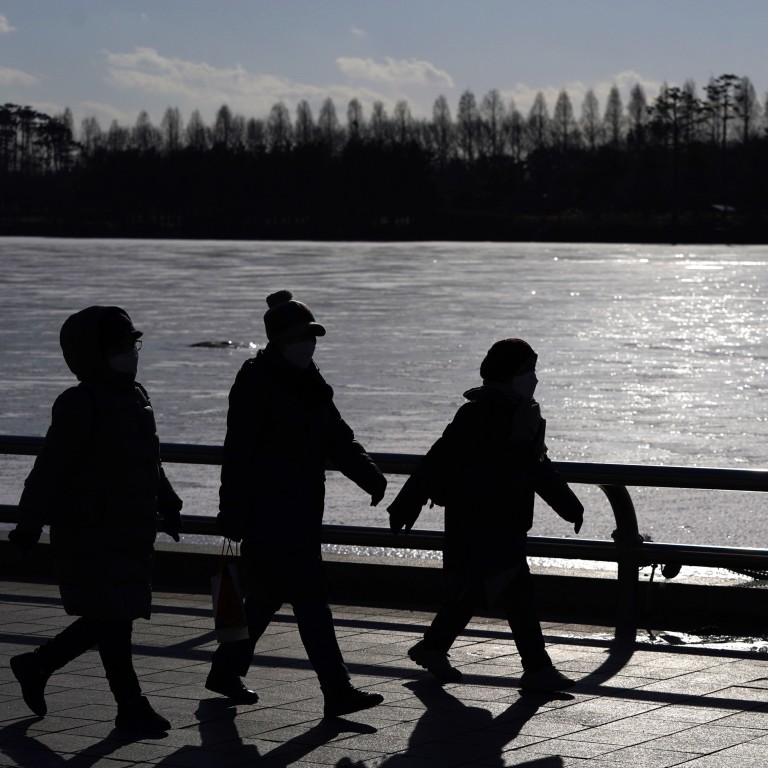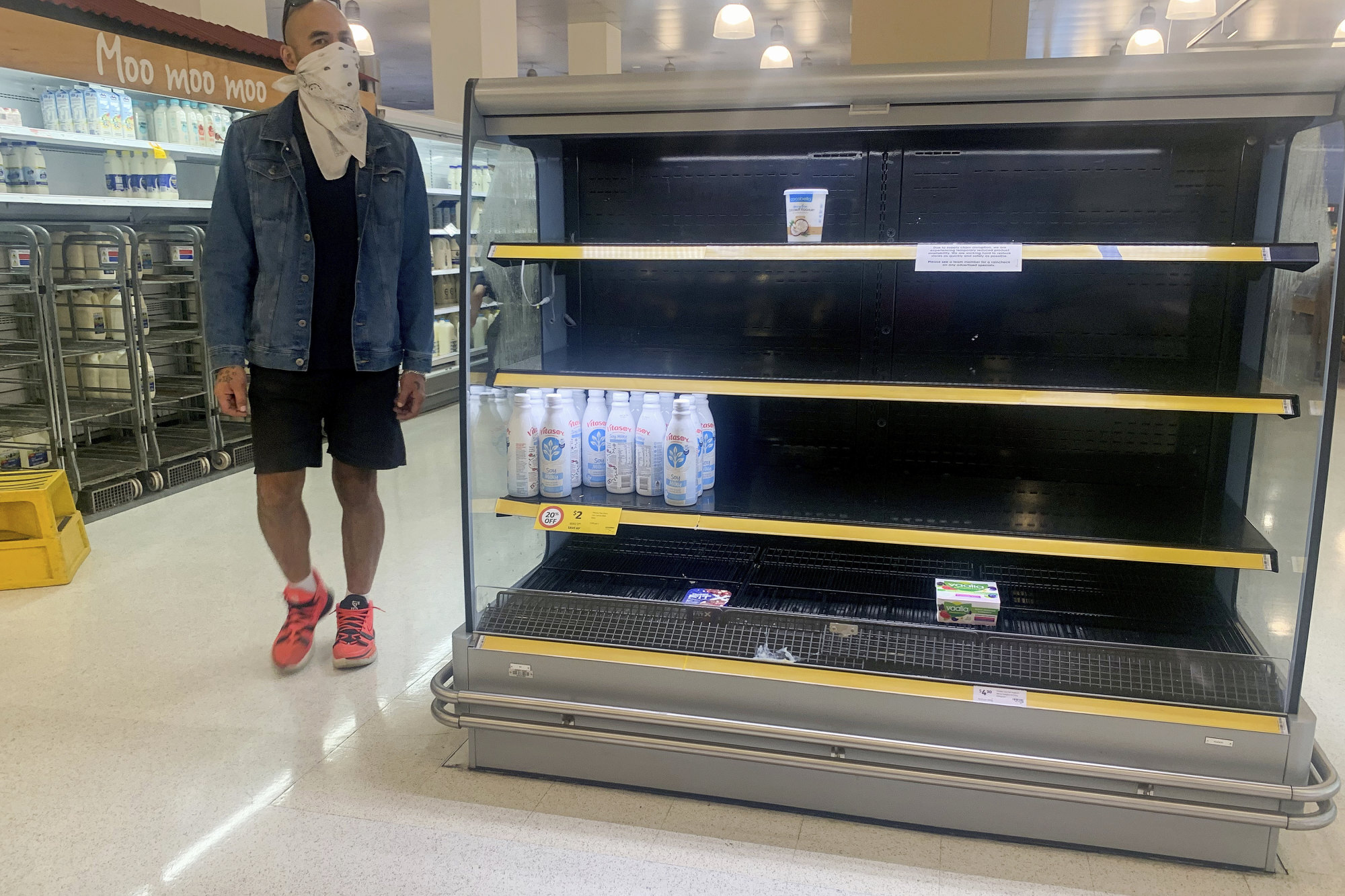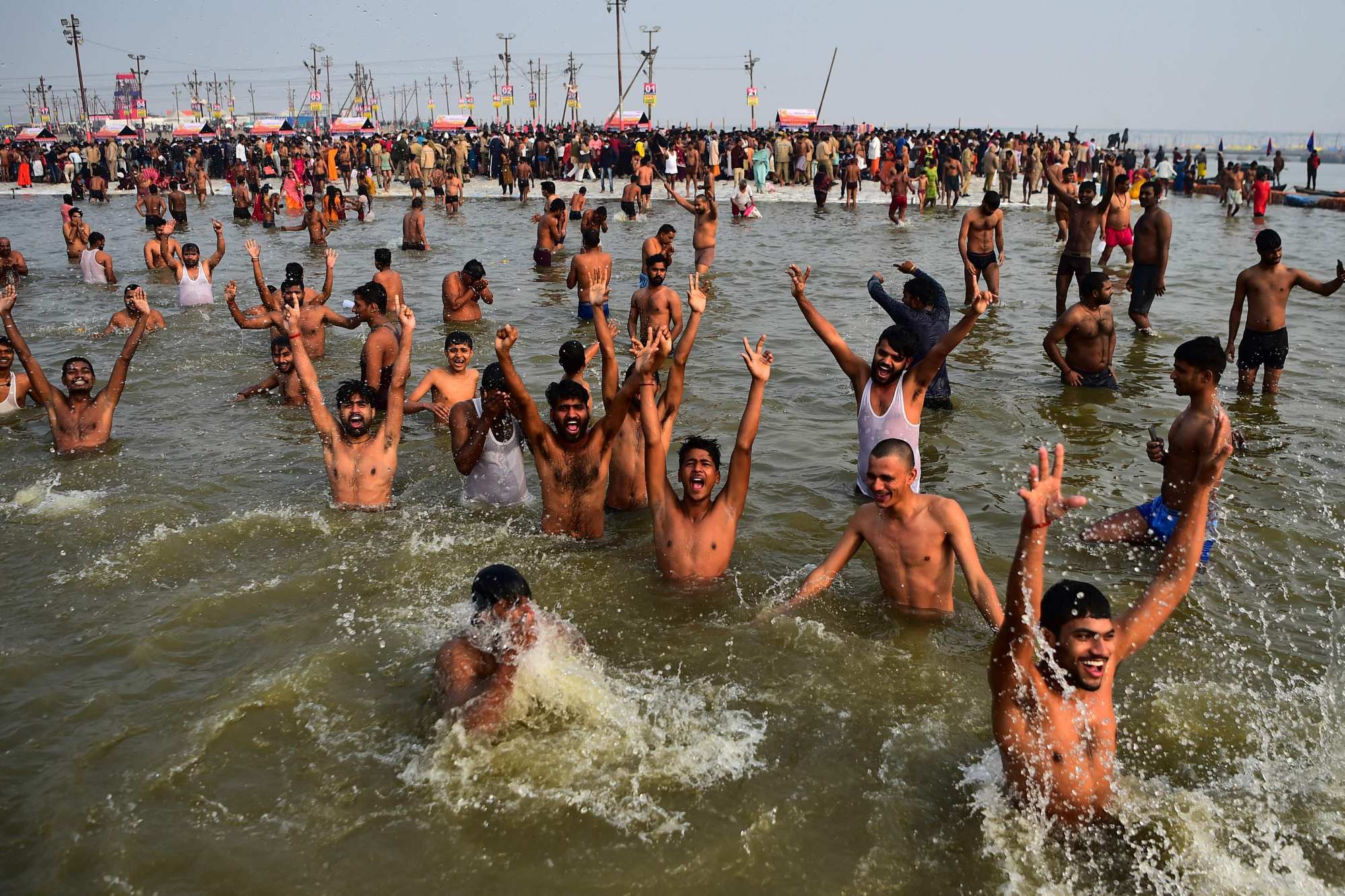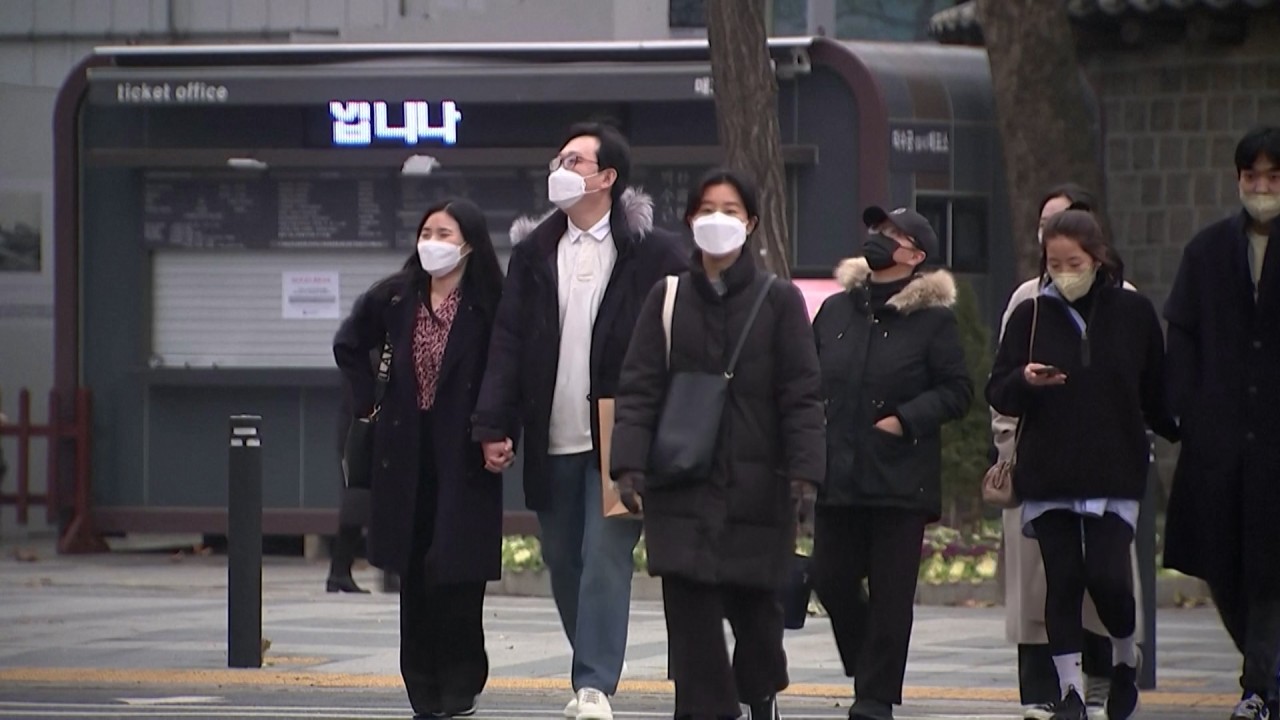
Coronavirus: South Korea extends curbs ahead of Lunar New Year to stem Omicron wave
- The extended measures will last until February 6, including a 9pm curfew for restaurants, cafes and bars
- Elsewhere, millions of Indian devotees took a holy dip into the frigid waters of the Ganges River despite rising cases in the country
The curbs were restored a month ago just six weeks after being eased under a “living with Covid-19” scheme, as record-breaking numbers of new cases and critically ill patients threatened to saturate the country’s medical system.
Daily tallies have dropped since, with 4,542 new cases for Thursday from a peak of almost 8,000 in mid-December, but the downtrend appeared to bottom out this week due partly to a surge in Omicron infections.
“The indicators have improved more or less but the number of new cases are no longer decreasing this week,” Prime Minister Kim Boo-kyum told an intra-agency meeting, noting that Omicron’s share of domestically transmitted infections has reached 20 per cent in just two weeks.
The extended curbs will last until February 6, including a 9pm curfew for restaurants, cafes and bars, but the limit on private gatherings will be raised to six fully vaccinated people from four.
Health officials have warned that without stricter distancing curbs Omicron would become dominant within two weeks, possibly sending daily tallies up to an unprecedented 20,000 in February and 30,000 in March.
As part of efforts to pre-empt Omicron’s spread, South Korea began treating patients with Pfizer’s antiviral pills on Friday, becoming the first Asian country to do so.
The government said on Friday it will submit a supplementary budget worth about 14 trillion won (US$11.8 billion) to parliament later this month to support small businesses and the self-employed hit by the pandemic, adding to a record 607.7 trillion won (US$511.5 billion) budget for 2022.
The country of 52 million people has largely been a Covid-19 mitigation success story, with 683,566 total infections and 6,259 deaths, thanks chiefly to masks, distancing and aggressive testing and tracing.
Nearly 95 per cent of South Korean adults have been fully vaccinated and more than 50 per cent have received a booster shot.
South Korea has also rolled out one of the region’s most stringent vaccine pass mandates, under which unvaccinated people can only dine out alone, or use takeaway or delivery services.
Australia moves to ease supply chain chaos that’s started creeping into exports
Australian state’s cases may plateau
Pressure on hospitals is likely to remain for “the next few weeks”, the state’s health deputy secretary, Susan Pearce, said, though hospitalisation numbers were tracking better than the best-case scenario in an official modelling a week ago.
“That is pleasing, but that plateauing is obviously still at a relatively high level of Covid patients in our hospitals and in our [intensive care],” Pearce told reporters in Sydney.
The surge in cases fuelled by the Omicron variant has piled pressure on hospitals, which are grappling with record admissions, and on other sectors of the economy.
With staff shortages beginning to disrupt supply chains, authorities have eased quarantine rules to allow thousands of close contacts of cases to return to work in the transport and freight industries if they are asymptomatic, an extension of exemptions that had earlier applied to food production staff.
But this has raised fears workers will be placed in riskier environments.
“Essential workers are being forced to put themselves in harm’s way to keep food on the shelves, medicines in stock, the lights and water on and keep this country open for business,” Australian Council of Trade Unions secretary Sally McManus said in a statement.

Of Australia’s nearly 1.4 million infections recorded since the pandemic began, about 1.2 million have been detected over the past four weeks.
New South Wales reported more than 63,000 new infections on Friday, while neighbouring Victoria posted about 35,000.
Australia recorded 56 deaths on Friday, with 29 of them in New South Wales, its biggest ever Covid-19 toll.
Other parts of Australia, largely virus-free until early December, are also hitting record caseloads. A month ago, Queensland reported a day with four new cases; on Friday it logged 23,630, a state record.
Why Omicron may be the final coronavirus variant of concern
Indians throng Ganges despite surge
Hindu pilgrims congregated at the Sangam, the confluence of three rivers – the Ganges, the Yamuna and the mythical Saraswati – in Prayagraj city, 200km northeast of Lucknow, the state capital of Uttar Pradesh, to participate in the Magh Mela festival, one of the most sacred pilgrimages in Hinduism. They bathed in the Ganges waters, a ritual Hindus believe will wash away their sins and free them from the cycle of death and rebirth.
A similar gathering at a Hindu festival last year in the Himalayan town of Haridwar, in neighbouring Uttarakhand state, helped spread the Delta variant that ravaged the country and made India one of the world’s worst-hit countries. Epidemiologists described the festival as a “superspreader event.”
Coronavirus infections, fuelled by the Omicron variant, are rising fast throughout India. It reported over 264,000 new cases on Friday but hospitalisation remains relatively low.
Millions of Hindus are expected to throng the festival for the next 47 days. Many of them will stay on the banks of the Ganges for a month leading the life of an ascetic, with the belief they will receive salvation. It has raised concerns that pilgrims could get infected and take the virus back to their cities and villages in other parts of the country.

Already, 77 policemen and 12 cleaning staff deployed for the event have tested positive for the virus.
“This is going to be a superspreader. The government should not allow a congregation of people in such a large number because religious gatherings in the past two years were found responsible for spreading the deadly virus all across the country,” said Utkarsh Mishra, a lawyer who has filed a petition in the Allahabad High Court asking that the festival be cancelled.
Mishra said only locals and heads of important Hindu monasteries should be allowed to take part in the ritual. Fearing a rise in infections, authorities in Uttarakhand have already banned a similar gathering.
Health experts earlier appealed for the festival to be cancelled in Uttar Pradesh too, but the government went ahead saying safety rules would be followed.
Critics of Prime Minister Narendra Modi and his Hindu-nationalist Bharatiya Janata Party say the festival has been allowed despite rising infections because the government isn’t willing to anger Hindus – they are the party’s biggest supporters – ahead of crucial state elections in Uttar Pradesh on February 10.
Philippines prolongs restrictions
Metro Manila, which accounts for a third of economic output, will remain under Alert Level 3, Cabinet Secretary Karlo Nograles said in a briefing on Friday. Outdoor restaurants can operate at half capacity, while cinemas, gyms and other indoor businesses are limited to 30 per cent capacity.
The post-holiday spike in infections has led to tighter limits on businesses in the capital, disrupted airlines and banks, and shortened stock trading.
Hospital beds in Manila are again filling up, with the unvaccinated accounting for most severe and critical cases, prompting the government to restrict movement.
Reporting by Reuters, Bloomberg, Associated Press

